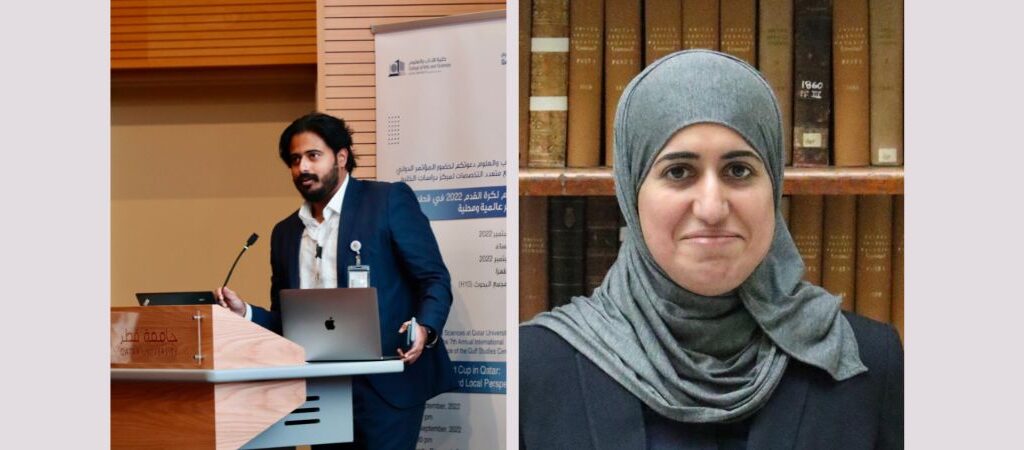The 2022 World Cup, Post-Colonial Narratives, and Sports Diplomacy

On December 10, 2010, Qatar, a small, wealthy state in the Gulf Cooperation Council (GCC), became the first Arab and Muslim country to be selected as the host of the FIFA World Cup. The Middle East is often misinterpreted by international media outlets as an unstable region ruptured by terrorism and sectarian schisms. Many Western media networks have directed their readers’ attention with discussions of cultural conventions that serve to construct boundaries of meaning by depicting Middle East countries in a particular light, predominantly as actual or cultural threats to the West. The biased misconception has produced an imaginary barrier separating this Eastern hub from the Western realm in the same way that Edward Said believed that Orientalism functioned as the West’s intellectual filter for examining other non-western societies.
As a global phenomenon, the number of small states increased due to a series of global shifts, including the collapse of the Soviet Union and Yugoslavia, the end of colonialization, and the termination of the British Protectorate in the Arabian Peninsula. Except for the Kingdom of Saudi Arabia, which recently celebrated its 92nd national day, the rest of the GCC states—Kuwait, Qatar, Bahrain, Oman, and the UAE—gained their independence in the 1960s and 1970s. Since the 2000s, Qatar became an economically powerful, but geographically small, state, and entered into the international relations arena dominated by traditional and militarily superior powers.
Emerging as a soft power player, Qatar has utilized culture and sport as an appropriate narrative to unbuckle its foreignness in the minds of the other. The small Gulf state began investing in art, hosting Sports Mega Events (SMEs), and building state-of-the-art infrastructure to delineate its own identity. By penetrating the sports sphere, Qatar is not only engaging in large-scale development and economic diversification but is also taking advantage of global exposure, international engagement, and sustaining the country’s legacy.
Through Qatar’s own post-colonial narratives related to the 2022 World Cup, it is attempting to move out of the frame set by the West: the dichotomy in which the West is depicted as superior, while the Other is portrayed as inferior. Through its soft power projections and post-colonial perspective, Qatar’s political identity as the host of significant sporting events functions as a counter-hegemony to Western stereotypes about the Muslim world.
As part of its sport diplomacy efforts, Qatar has been active in achieving one of its foreign policy pillars: international cooperation. Article n. 7 of the Permanent Qatari Constitution stipulates that one of the key principles of Qatar’s foreign policy is the enhancement of global cooperation and strengthening international stability by solving conflicts through peaceful means. Meditation, neutralizing its relationships with regional rivals, and nation branding exemplify strategies igniting Qatar’s soft power and enhancing its foreign policy.
By hosting such a worldwide event as the FIFA World Cup, Qatar is aiming to use the power of sport to achieve several objectives: increase the visibility of the Muslim World in a more positive light, strengthen the bonds among Muslim youths through solidarity and common love of sport, and establish Qatar’s alliances with prominent global political and financial partners to achieve its long-term sustainability plans away from volatile hydrocarbon revenues.
Article by Thomas Bonnie James and Sarah Muhanna Al-Naimi, Qatar University
Thomas Bonnie James is a lecturer and specialist in West Asian Studies. He is a Ph.D. Candidate and Graduate Research Assistant at the Gulf Studies Center at Qatar University. He holds a Bachelor’s and Master’s in Political Science from Jamia Millia Islamia, New Delhi. His primary research areas include International Relations, Global Political Economy, Foreign Policy Analysis, and South Asian Studies. Thomas’s recent publications have looked at the role of soft power, sports diplomacy, and sports governance with respect to Qatar and the 2022 FIFA World Cup.
Sarah Muhanna Al-Naimi obtained her first MA in Public Policy from HBKU in 2012. Her thesis in Qatar’s mediation policy in the Islamic World investigated Qatar’s foreign policy in 1995–2011. In 2022, She obtained her second MA in the Global Diplomacy program at SOAS. Her thesis analyzed the power of small states in the sports sector, with a focus on Qatar. In 2020, she started her PhD in Gulf Studies at Qatar University. Her academic and research vocation is to explore Qatar’s foreign policy, demonstrating how non-traditional tools enabled branding Qatar’s image regionally and internationally. During her 17 years of professional experience as a researcher in the Diplomatic Institute at the Ministry of Foreign Affairs, she published articles in the Diplomacy journal at the Diplomatic Institute.
Read more about the Building a Legacy: Qatar FIFA World Cup 2022 project here.
The posts and comments on this blog are the views and opinions of the author(s). Posts and comments are the sole responsibility of the author(s). They are not approved or endorsed by the Center for International and Regional Studies (CIRS), Georgetown University in Qatar (GU-Q), or Georgetown University in the United States, and do not represent the views, opinions, or policies of the Center or the University.